UM-Flint History integrates area museums in coursework
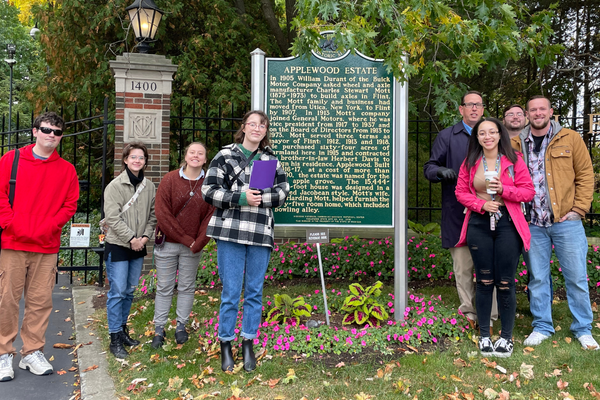
For many college students, not every lesson is learned inside the classroom. Whether it's through an internship, a volunteer opportunity or a service-learning project, the opportunities for acquiring knowledge are many. And for an inquisitive group of University of Michigan-Flint history students, a variety of Genesee County museums are providing new occasions for learning.
The outings are all part of a hybrid museum studies course led by Thomas Henthorn, a Wyatt-endowed professor of history.
The first half of the course focuses on museum practice and careers, or the nuts and bolts of how museums operate and who does the work. The Sloan Museum of Discovery was selected as one of the sites and is used to highlight museum practices and provides students the chance to meet with the collections, education and executive leadership teams to learn about what they do each day to keep the museum operating smoothly.
The group's most recent visit took place at Applewood Estate, the former home of Charles Stewart Mott.
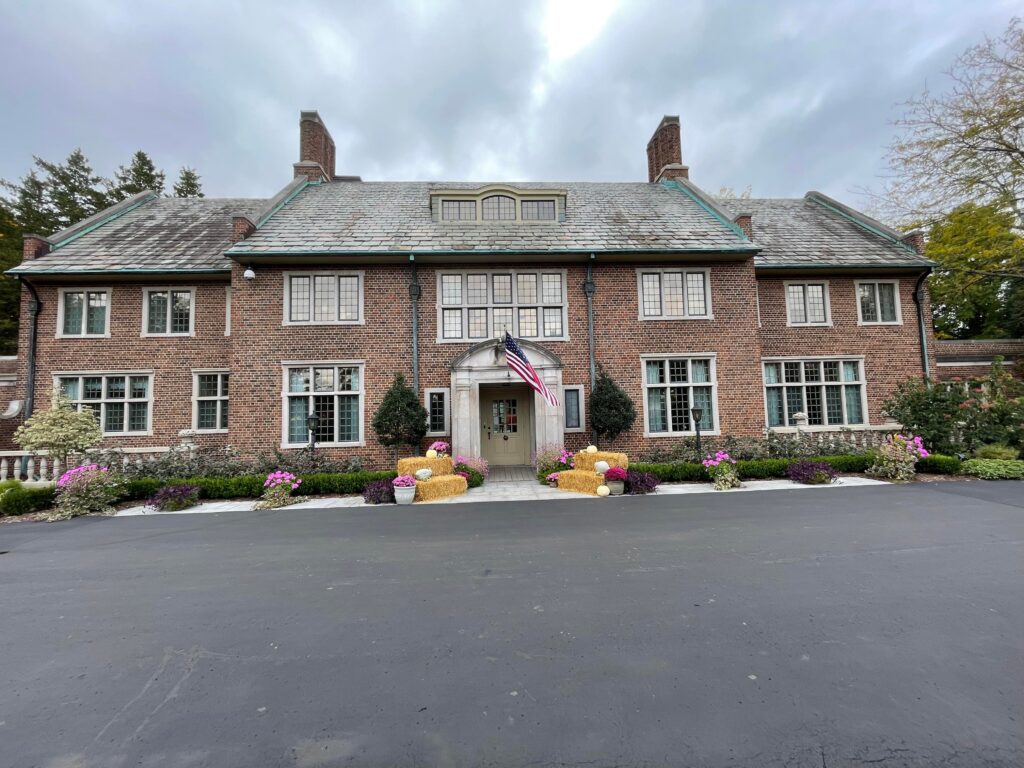
The property, maintained by the Ruth Mott Foundation, is a sprawling 64-acre plot of land that includes original buildings in the forms of the main house, garage, barn, chicken coop, and gardener's cottage.
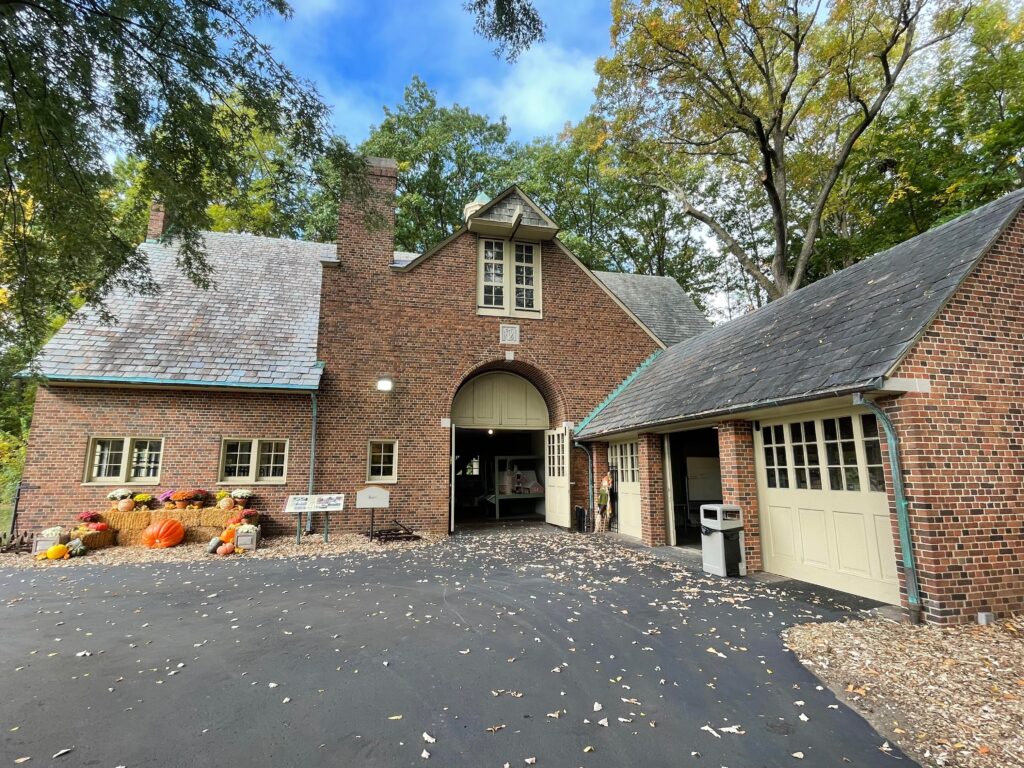
The visit combined a discussion with staff and a tour of the buildings and the grounds, which feature an apple orchard with more than 70 different types of apples, and annual, perennial, and rose gardens.
The tour was led by Julia Poplar, a senior communication major from Fenton and Applewood's manager of visitor services. Poplar, who will graduate this December, said that there are several different practices in place to effectively engage with everyone who visits the estate.
One of those practices includes following a different script that features various facts about the property, depending on the age group of the visitors. Other practices include tracking visitor data, promoting the estate and its various programs on social media, as well as collaborating with staff in the collection and education department to ensure guests have the best experience possible.
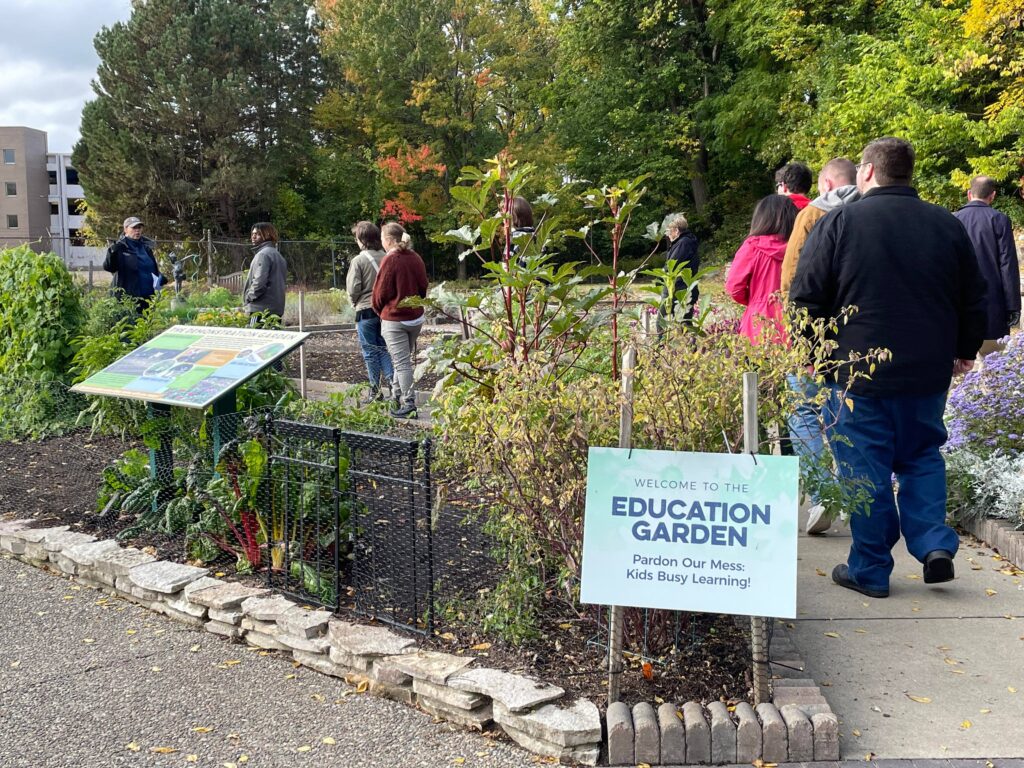
"The visit to Applewood was to show the students how museums and historic sites work to engage their visitors, which is something the estate is especially good at," said Henthorn.
Izzy Guertin, a senior history major from Fenton, said the trip to Applewood provided her with great insight into museums. "I really enjoyed learning about the different ways staff engages with visitors and how they source volunteers."
Casey DeMoss, a senior art history major from Fenton, agreed. "It was great to learn about how all of the different departments of the estate work together to accomplish goals like increasing engagement and learning how to make programs better."
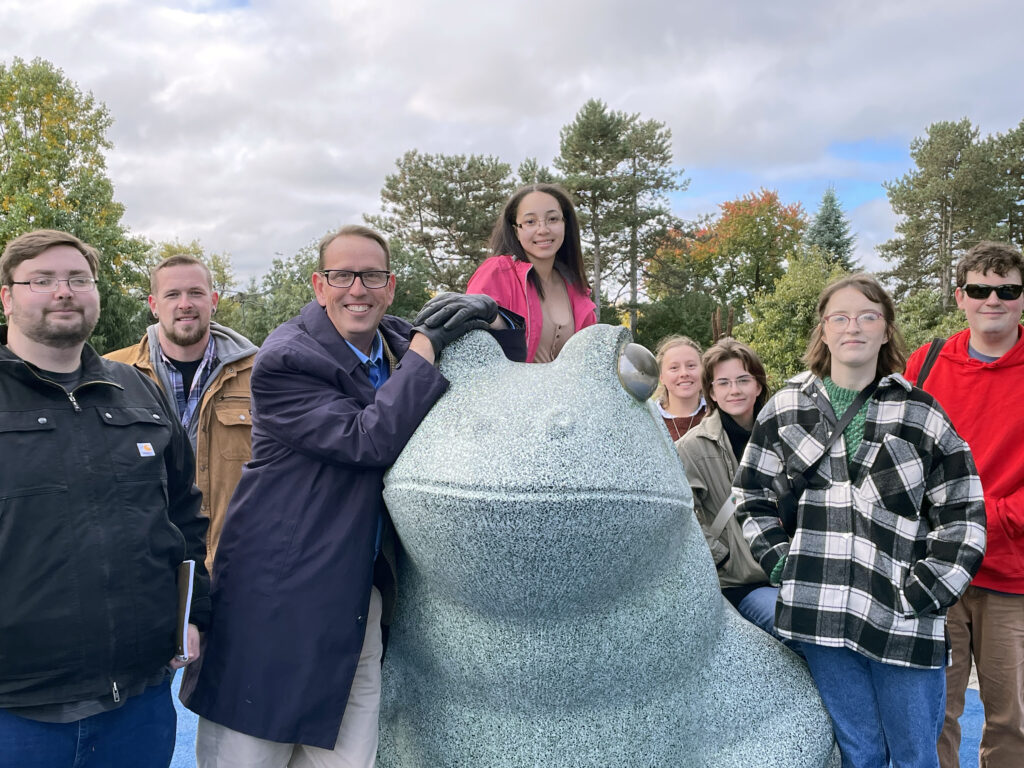
Other museum visits this semester include smaller sites like the Whaley House, which Henthorn said are common in the museum world. The semester's final visit will be to the Dort Durant Carriage Company. The class will then wrap up the semester online as students apply what they learned from community members to museum theory, American museum development, museum ethics and current issues in museums, such as the work they're doing to expand the perspectives they portray beyond those of Western culture.
Students will also be working on an object portfolio during the second part of the course, where they'll be required to research an object housed at the Sloan Museum and delve into its provenance, history and condition. Students will then need to create an interpretive label and catalog description for the items.
"Part one is based on the work that people working in the museum would do, and part two of the project is designed for visitors," said Henthorn. He added that the object portfolio is just one of the assignments that will prepare students for their final exam, which is creating an exhibit proposal.
"The students envision that they are pitching a proposal to a small museum and have to include all the elements of a typical proposal such as the objects they intend to use, the main message of the exhibit, what it will look like and how they will fund it."
Related Posts
No related photos.
Madeline Campbell
Madeline Campbell is the communications specialist for the College of Arts & Sciences. She can be reached at mciak@umich.edu.